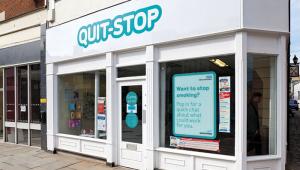By Mark Smulian
1 March 2011
The Department of Health cannot measure the impact of its cancer strategy and does not know if it is commissioning cancer services effectively, a parliamentary inquiry has found.
A report by the Public Accounts Committee, published today, says that cancer survival rates have improved but services suffered from numerous gaps in basic information.
PAC chair Margaret Hodge said: ‘Mortality rates have been falling and cancer waiting times targets consistently achieved.
‘But the one-year survival rates in England are still poor compared with the best performing European countries. There also remain unexplained wide variations across the country in how cancer services perform and in types of treatment available.
‘It is very disappointing that, a decade after publication of the NHS Cancer Plan, there is still not enough good quality and timely information on such important aspects of cancer services as the use of chemotherapy and the stage at which patients’ cancers are being diagnosed.’
The report,Deliveringthe Cancer Reform Strategy, found the DoH did not know the strategy’s effect on survival rates, ‘because cost and outcomes data are not sufficiently timely’.
Many of those commissioning cancer services had an insufficient grasp of costs and value for money.
Only 20% of primary care trusts had assessed the value for money delivered by their providers, and 12% had no plans to carry out such an assessment.
The committee warned that as the NHS moves towards commissioning by general practitioners, clear standards for demonstrating value will be needed.
The MPs said similar problems affected care outside hospitals. The number of cancer survivors was expected to increase from 1.7m in 2010 to 2m by 2020, ‘yet the department is unable to measure whether it is delivering on its commitment of more cost-effective provision of follow-up and care outside hospitals’.
Gaps persisted in the availability, consistency, timeliness and quality of data even on chemotherapy, which accounts for 20% of the cancer budget.
‘The department lacks a coherent strategy to address these gaps and limitations,’ the report says.
There was also a scarcity of data on the stage reached by patients’ cancers at the point of diagnosis.
‘This is key to making better use of resources and improving outcomes, yet only the Eastern region has anything like acceptable coverage,’ it adds.



















